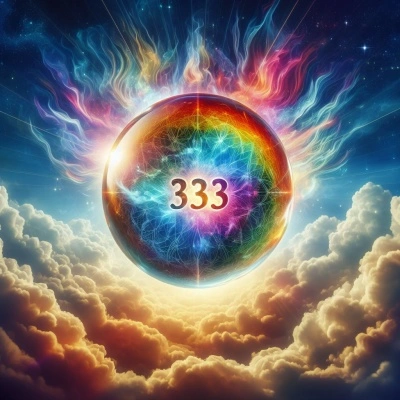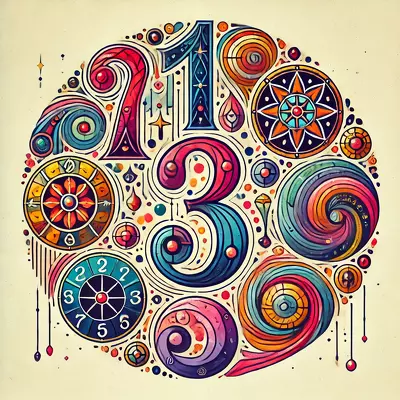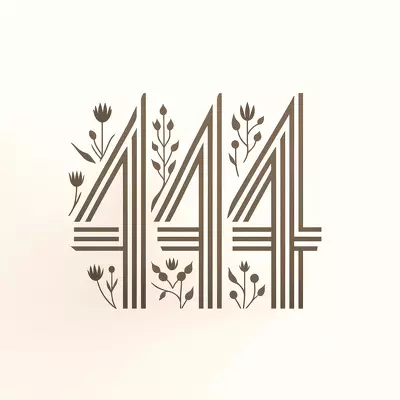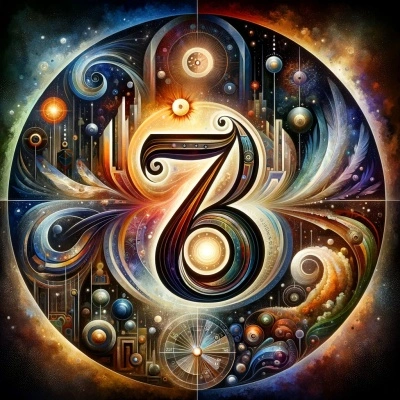From Ancient Practices to Modern Queries: What Is My Number in Numerology?

Numerology, an ancient practice, believes numbers carry specific energies that influence our lives. By understanding these energies, we gain insights into our strengths, challenges, and destiny. One fundamental question many seek to answer in this realm is related to their unique numerical identity. This journey to discover one’s number unfolds a world of deeper self-awareness and connection to the universe.
I. Introduction
A. Understanding Numerology
Numerology is the mystical study of numbers and their esoteric significance in our lives. Rooted in mathematics and philosophy, numerology suggests that every number has a unique vibration and symbolic meaning. For instance, the number 7 is often associated with spirituality and introspection, while the number 3 might relate to communication and creativity. Throughout history, numbers have been revered not just for mathematical prowess but for their perceived hidden truths and influences.
B. The Significance of Numbers
To the uninitiated, numbers are mere mathematical symbols. However, in numerology, each number is a unique universe of traits, tendencies, and truths. For instance, someone with a Life Path Number of 1 might be an independent leader, while a person with a number 2 might excel in partnerships and diplomacy. It’s this profound resonance that numbers have with personality traits and life events that makes numerology an enriching tool for self-exploration.
C. Purpose of This Guide
Numerology is a vast field with layers of complexity that might seem daunting to beginners. This guide breaks down its intricate concepts, offering both novices and practitioners a refresher on its core principles. From the history of numerology to the specifics of calculation, this guide provides a holistic overview.
II. History of Numerology
A. Ancient Beginnings
The reverence for numbers predates recorded history. Ancient Egyptians incorporated numerology in their architecture, like the pyramids, believing in the divine significance of numbers. Similarly, Babylonians employed numbers in their rituals and prophecies. But it was Pythagoras who truly bridged the gap between numbers and spiritualism. He believed that everything in the universe was numerically based and that understanding numbers could bring one closer to the divine truth.
B. Evolution Over Time
Over the millennia, numerology seeped into various cultures, each adding its unique perspective. For instance, the Chinese have long believed in the auspiciousness of certain numbers and even base architectural and life decisions on numerological calculations. In the West, Christian mysticism incorporated numbers to interpret scriptures. The Middle Ages saw a fusion of Pythagorean and Hebrew numerology, leading to a more comprehensive system.
C. Modern-Day Acceptance
Today, numerology is a blend of its rich historical tapestry. While scientists might dismiss it as pseudoscience, many swear by its accuracy in personality assessments, predictive analysis, and life guidance. Its resurgence in the digital age, with numerous apps and online courses, underscores its timeless appeal.
III. Different Numerology Systems
A. Pythagorean System
Attributed to the Greek mathematician Pythagoras, this system is arguably the most popular in the Western world. Here, each letter of the alphabet is assigned a number from 1 to 9. These numbers cycle, so the letter ‘J’ would be 1 again, and so forth. By converting names and birthdates into numbers, one can derive significant numerological data. For example, the sum of the birth date numbers can reveal one’s Life Path Number.
B. Chaldean System
With origins in Ancient Babylon, this system offers a more intricate approach. Here, numbers are assigned to letters based on their vibrational frequency. Notably, the number 9 is considered sacred and is typically excluded from the main calculations. The Chaldean system is renowned for its accuracy and depth, providing insights that some believe are more spiritually connected due to its ancient origins.
C. Kabbalah Numerology
Rooted in the ancient Jewish form of mystical thought known as Kabbalah, this system revolves around the Hebrew alphabet. Unlike other systems that incorporate both the name and birth date, Kabbalah numerology predominantly focuses on the name. Each letter in the Hebrew alphabet is associated with a specific number. By calculating the numerical value of a name, practitioners can uncover the inner nature or the soul’s purpose of the individual. Historically, Kabbalah numerology has been used not just for personal introspection but also for understanding religious texts and the deeper meanings within them.
IV. Intersecting Systems
A. Integration Across Cultures
Throughout history, civilizations have acknowledged the mystique of numbers, with many evolving their unique interpretations. The intriguing part is the echoing themes observed across these cultures—the Maya, with their advanced mathematical systems; the ancient Greeks, with their Pythagorean beliefs. And the Chinese, with their cultural reverence for certain numbers—each showcases that numbers transcend language and geography.
B. Unified Themes
Irrespective of the system or culture, several numbers exhibit a striking similarity in interpretation. Consider the number 3:
- In Christianity, it represents the Holy Trinity.
- In Chinese culture, it’s associated with life and living.
- In Pythagorean numerology, it’s linked to communication and expression.
Such commonalities underpin the universal nature of numerological vibrations.
C. Modern Adaptations
Globalization and the intermixing of cultures have led to a fusion of numerological systems. Modern numerologists often integrate principles from various traditions, offering a holistic view. This approach not only caters to diverse clientele but also enriches the insights derived by tapping into a broader numerological spectrum.
V. Numerology Today
A. Applications in Modern Life
Beyond personal introspection, numerology’s influence has permeated various sectors of modern life. Real estate agents might avoid properties with the number 4 in some Asian markets due to their association with death. Conversely, the number 8, symbolizing prosperity, is often sought after. Personal decisions, such as naming a newborn or choosing a wedding date, are sometimes influenced by numerological consultations.
B. Digital Revolution
The digital age has democratized access to numerology. Websites, mobile apps, and online courses offer enthusiasts tools to compute their core numbers, forecast trends, or even undergo comprehensive numerological studies. While the essence remains unchanged, the mode of delivery and interaction has undergone a tech-inspired transformation.
C. Critics and Skeptics
No discipline, especially one rooted in mysticism, is free from skepticism. The empirical nature of the modern world demands concrete evidence, which spiritual and esoteric practices like numerology often cannot provide in conventional terms. However, the real testament to numerology’s value is its enduring presence and the countless testimonials of those who’ve found clarity, purpose, and guidance through its principles.
VI. Practical Steps to Start with Numerology
A. Discovering Your Core Numbers
Embarking on a numerological journey begins with understanding one’s core numbers. These numbers, derived from personal details like your name and birthdate, serve as the foundation of your numerological profile. They can offer insights into your innate nature, strengths, challenges, and life purpose. Calculating these numbers is the first step towards a deeper numerological exploration.
B. Daily Numerology
Incorporating numerology into daily life can be as simple as understanding the vibration of each day. By assessing the numerological energy of a particular day, individuals can make informed decisions, from business dealings to personal interactions, aligning actions with the universe’s natural flow.
C. Seeking Expert Guidance
While self-study and online resources are invaluable, there’s an undeniable depth that comes from consulting with an experienced numerologist. These experts, armed with years of study and intuitive prowess, can provide nuanced readings, helping decode complex patterns and offering guidance for life’s more intricate challenges.
VII. The Future of Numerology
A. Technological Integration
As we advance further into the digital age, the integration of numerology with cutting-edge technology is inevitable. We might soon see AI-powered numerology bots that can provide instant readings or virtual reality spaces dedicated to numerological learning and exploration. This fusion of ancient wisdom with modern tech promises a more interactive and personalized experience for enthusiasts.
B. Global Resurgence
The 21st century has witnessed a renewed interest in ancient practices, from yoga to meditation to numerology. As people increasingly seek holistic and spiritual avenues to cope with the stresses of modern life, numerology is poised for a global resurgence. Its principles, which offer both introspective insights and practical guidance, will likely appeal to a broader audience.
C. Educational Inclusion
The coming years may see numerology being introduced in alternative education systems or spiritual retreat centers as a subject of study. This would not only validate its significance but also offer structured learning paths for those keen on delving deep into this mystical practice.
D. Collaboration with Other Disciplines
Numerology’s potential is magnified when used in tandem with other esoteric and spiritual practices. Collaborations with disciplines like astrology, tarot reading, or even Feng Shui can offer multifaceted insights. Such integrative approaches can provide a more comprehensive understanding of an individual’s life path, challenges, and potential.
VIII. Testimonials or Case Studies
A. Real-life Impacts
The true testament to numerology’s efficacy lies in the real-life experiences of those who’ve sought its guidance. Through testimonials and case studies, potential skeptics can witness the tangible impacts numerology has had on individuals across various life scenarios.
B. Sarah’s Journey
Sarah, a 35-year-old marketing professional, felt stagnated both personally and professionally. After a numerological consultation, she discovered her Life Path Number was 7, indicating a deep-seated need for spiritual growth and introspection. Acting on this insight, Sarah embarked on a year-long sabbatical, delving into spiritual practices. She returned rejuvenated, shifting her career to holistic wellness coaching—a path more aligned with her core number’s guidance.
C. Mike’s Business Success
Mike, an entrepreneur, always faced hurdles in setting a launch date for his projects. A numerologist advised him to align his launches with dates vibrating to the number 8, symbolizing abundance and success. Mike reported a noticeable positive shift in the reception and success rate of his ventures to post this change.
IX. FAQs
Q: How do I find my master number?
A: In numerology, master numbers are 11, 22, and 33. To find yours, calculate your Life Path number. If the total is 11, 22, or 33, it’s your master number. If you still need one, you don’t have one.
Q: How do you calculate personal numbers?
A: Your number is derived by adding the digits of your birth month and day. If you’re born on April 25, you’d add 4 (April) + 2 + 5 = 11. For two-digit sums, you’d further reduce them to a single digit unless it’s a master number.
Q: Is Master number 11 rare?
A: Master number 11 isn’t necessarily “rare”, but it’s less common than other Life Path numbers. It holds special spiritual significance and is often associated with intuition and visionary insights.
Q: What year am I in numerology?
A: Your personal year number in numerology is found by adding the current year to your birth month and day. Reduce the sum to a single digit to find your year. For instance, someone born on May 3, 2023, would calculate 5 + 3 + 2 + 0 + 2 + 3 = 15, and then 1 + 5 = 6. Their year would be 6.
Q: What is the significance of finding my number in numerology?
A: Discovering your number offers insights into your life’s purpose, challenges, and opportunities. It can guide personal growth decision-making and provide clarity on life’s path.
Q: Are there other important numbers in numerology besides the Life Path number?
A: Yes, besides the Life Path number, there are other crucial numbers like the Destiny Number, Soul Urge Number, and Expression Number. Each provides a different perspective on your life’s journey.
Q: Can my numerology number change over time?
A: Your Life Path and other core numbers, derived from your birth date, remain constant. However, numbers like the Personal Year Number change annually, reflecting different energies and challenges for each year.
X. Conclusion
A. The Timeless Allure of Numerological Insights
Numerology, an ancient practice rooted in the belief that numbers have vibrational significance, continues to find relevance in the modern world. Its principles, offering a blend of introspection and practical guidance, appeal to a diverse audience. Whether it’s through the lens of personal experiences, as seen in testimonials, or the broader global resurgence, numerology remains a potent tool for understanding life’s intricacies.
B. Modern Interpretations: Making Ancient Wisdom Accessible
Incorporating visuals and studying real-life cases only enriches the tapestry of knowledge around numerology, making it more accessible and relatable. As humanity progresses and evolves, so does our approach to understanding these ancient systems, ensuring they remain invaluable for generations to come.
XI. Suggested Readings
Numerology has been a subject of intrigue and study for thousands of years. For those keen on delving deeper into this fascinating world, there’s a plethora of literature written by some of the most renowned experts in the field. Here’s a curated list of five essential reads that offer profound insights into the world of numbers and their influence on our lives:
- “The Complete Book of Numerology” by David A. Phillips – A comprehensive guide that delves deep into the principles of numerology, explaining its origins, methodologies, and practical applications in today’s world.
- “Numerology: The Romance in Your Name” by Juno Jordan – A classic in the realm of numerological literature, this book beautifully elucidates the connection between names, birth dates, and one’s destiny.
- “The Numerology Guidebook: Uncover Your Destiny and the Blueprint of Your Life” by Michelle Buchanan – A contemporary take on numerology, Buchanan’s guidebook is both insightful and accessible, making it perfect for beginners and seasoned practitioners alike.
- “The Secret Science of Numerology: The Hidden Meaning of Numbers and Letters” by Shirley Blackwell Lawrence – Lawrence takes readers on a journey through the mystical world of numbers, exploring their esoteric meanings and significance in various spiritual traditions.
- “Number Vibration in Questions and Answers” by L. Dow Balliett – An intriguing exploration of the vibrational energies of numbers, Balliett’s book delves into the more intricate aspects of numerology, offering readers a deeper understanding of its complexities.
For those eager to unravel the mysteries of life, these books offer a rich tapestry of knowledge and insights. Whether you’re a novice just starting or a seasoned numerologist looking to expand your horizons, the above reads promise a transformative journey into the heart of numerology.






